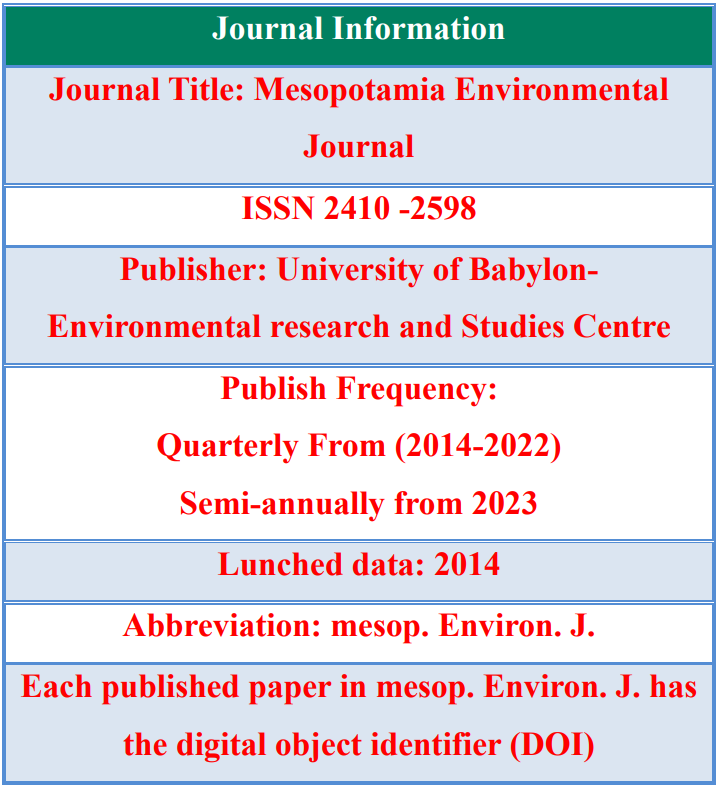Evaluating of Medical Waste Disposal Process in Hospitals
Keywords:
medical waste, disposal process, waste disposal practices, safety for waste disposalAbstract
Medical waste is defined by the World Health Organization as waste produced by medical procedures and includes a wide range of items, including used needles and syringes, soiled dressings, body parts, diagnostic samples, blood, chemicals, etc. The aim of the current study was to evaluate medical waste disposal process practices among healthcare workers in some hospitals in Mosul, Iraq and to estimate the safety practice and perception among waste-exposed personnel for the exposure hazards. A cross-sectional study was performed in Mosul city was designed and being set to investigate the perceptions on medical waste disposal process management, among medical staff (n=642) and workers-related to medical service providing (n=60) in their working hospitals. Observation checklist in hospitals were used to verify the acquired data. Results revealed that The old incinerators do not contain filters to purify the gases generated from the chimney, and thick black smoke is observed that comes out of the burning and works at random times. Those working in waste incineration do not have sufficient experience, and for this reason it is well noted that they do not wear protective equipment to protect themselves from the dangers of burning and heat. Conclusively, the current study pinpoints on the urgent needs for allocating a proper strategy for medical waste disposal management with clear plans and policies for the proper management in hospitals of Mosul city. Proper education and training must be offered to all workers from doctors to rag pickers to ensure an understanding of the risks that wastes pose and how to manage wastes.
Published
How to Cite
Issue
Section
License
Copyright (c) 2024 Mesopotamia Environmental Journal (mesop. environ. j) ISSN: 2410-2598

This work is licensed under a Creative Commons Attribution-NonCommercial 4.0 International License.



